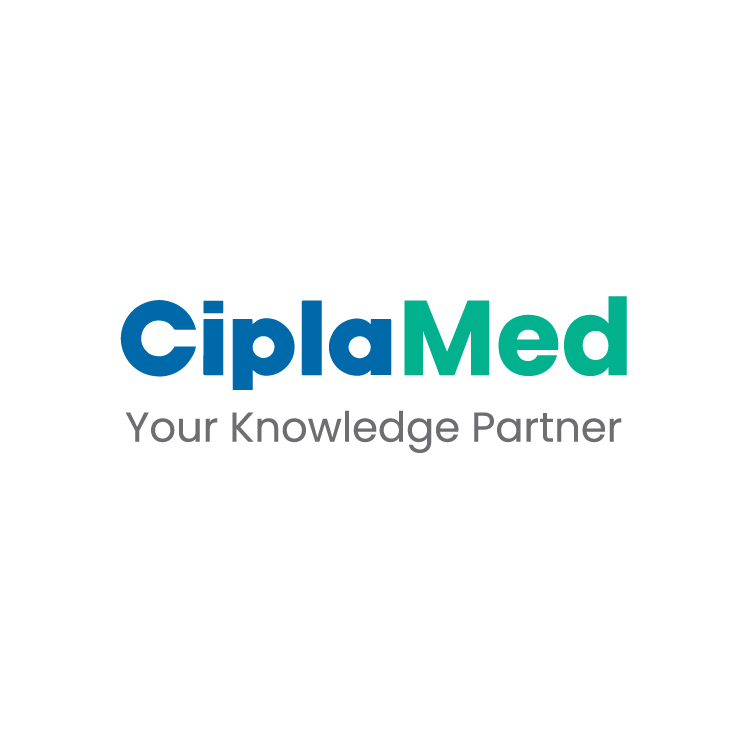Long-term features of PCOS and medical treatment - Terhi Pilonen
The evidence-based guidelines are not only about the evidence that we retrieve from the literature, it’s also about clinical expertise, cost-effectiveness, consumer perspective, and evidence from the research from which recommendations can be made. There is stronger evidence that Polycystic ovary syndrome (PCOS) has increased cardiovascular risk as there is about a 60% increase in cardiovascular diseases. Therefore, women with PCOS should be considered at increased risk of CVD and potentially of cardiovascular mortality and therefore, should be assessed for these risk factors. Funding bodies should recognize that PCOS is highly prevalent and has a significant higher risk for diabetes and should have regular glycemic assessment. The metabolic risk assessment in women with PCOS will include BMI at the baseline followed by glucose screening, blood pressure checks annually and lipid screening in overweight and obese women at diagnosis. Obstructive sleep apnea and endometrial cancer should also be considered with awareness and screening. Women with PCOS have higher risk pregnancies identified during antenatal care Therefore, preconceptionally and antenatal care are important. The medical treatment should target women’s primary concerns and consider impact on quality of life and should be prioritized. Oral contraceptives are the first-line medical treatment in PCOS, but absolute and relative contraindications by the WHO guidelines should also be considered. Low EE doses should be used and natural E2 preparations should be considered, Progestin-only preparations can be used for endometrial protection. The combination of COCP and metformin could be considered to offer little additional clinical benefits as compared to use of metformin use alone, however, new guidelines have lower recommendations for this combination therapy. The combination with effective contraception, anti-androgens could be considered to treat hirsutism in women with PCOS. Mechanical laser therapies should be considered for reducing facial hirsutism and for related depression, anxiety and quality of life in women with PCOS. A greater number of laser treatment sessions may be required. Bariatric/metabolic surgery could be considered to improve weight loss, hypertension and diabetes. Anti-obesity medications could also be considered. Healthcare professionals should ensure concurrent effective contraception when pregnancy is possible. Inositol could be considered potential for improvement in biochemical hyperandrogenism and metabolic measures, yet with limited clinical benefits.
Infertility- Adam Balen
Women with PCOS have an increased risk of adverse pregnancy outcomes and a number of obstetrical problems, therefore, should be counselled on the adverse impact of excess weight. Those with PCOS should be reassured that pregnancy can often be successfully achieved either naturally or with assistance. There should be ongoing monitoring of patients for adverse effects and infants for congenital anomalies in all studies conducted with ovulation induction agents and these should be reported in any published paper. Women with PCOS need to have an endocrine profile and pelvic ultrasound scan, some basic assessment of their general health and routine preconception assessments. Some additional investigations like semen analysis and tubal patency assessment should be considered. Healthy lifestyle encompassing healthy eating and regular physical activity should be recommended to optimize fertility treatment outcomes and health during pregnancy. Letrozole should be the first line pharmacological treatment for ovulation induction in infertile anovulatory women with PCOS, with no other infertility factors. There is no evidence for increased teratogenicity compared with other ovulation induction agents. Metformin could be used alone in women with PCOS with anovulatory infertility factors to improve clinical pregnancy and live birth rates whilst informing women that there are more effective ovulation agents. Women should be counselled about the potential mild gastrointestinal side-effects. Clomiphene citrate could be used in preference to metformin in women with PCOS with anovulatory infertility and no other infertility factors to improve ovulation, clinical pregnancy and live birth rates. The risk of multiple pregnancy is increased with clomiphene citrate use and therefore required ultrasound monitoring. Clomiphene citrate combined with metformin could also be used rather than metformin alone and monitoring of combined cycles will need to be equivalent to clomiphene citrate alone. gonadotrophins alone could be considered rather than clomiphene citrate in therapy naive women with PCOS to improve ovulation, clinical pregnancy and live birth rates. These could be considered rather than the combination of clomiphene citrate and metformin in women with clomiphene citrate resistance and no other infertility factors. Either gonadotrophins or laparoscopic ovarian surgery could be used in women with clomiphene citrate resistance and no other infertility factors following counselling on higher live birth rate and higher multiple pregnancy rates with gonadotrophins. gonadotrophins could be second line pharmacological therapy for women with PCOS who have failed first line oral ovulation induction. When gonadotrophins are to be prescribed, the following should be considered- cost of intervention, expertise required, the degree of intensive ultrasound monitoring required and a low dose step-up protocol should be used to optimize the chance of mono-follicular development. There appears to be no difference in the clinical efficacy of the available gonadotrophin preparations. Laparoscopic ovarian surgery could be second line therapy for women with clomiphene citrate resistance. There are both intraoperative and postoperative risks, which are higher in women who are above healthy weight. In the absence of an absolute indication of IVF/ICSI, IVF could be offered in women with PCOS if first or second-line induction therapies have failed. In these women, the use of IVF is effective and when elective single embryo transfer is used, multiple pregnancies can be minimized. These women should be counselled prior to starting treatment about the increased risk of ovarian hyperstimulation syndrome and options to reduce the risk should be offered. GnRH antagonist protocol cannot be recommended over GnRH agonist long protocol in women with PCOS undergoing IVF/ICSI to improve clinical pregnancy or live birth rate. The use of GnRH antagonist protocol for women with PCOS undergoing IVF/ICSI is recommended as it enables use of agonist triggers with the freezing of all embryos generated if required without compromising the cumulative live birth rate to reduce risk of significant OHSS. Either urinary or recombinant FSH could be used in women undergoing ovarian stimulation for IVF/ICSI with insufficient evidence to recommend a particular type of FSH preparation. Triggering final oocyte maturation with GnRH agonist and freezing all suitable embryos is recommended in an IVF/ICSI cycle with a GnRH antagonist protocol. The use of IVM and ICSI could be considered as an alternative to stimulated IVF/ICSI cycle acknowledging there is no risk of OHSS, but a lower cumulative live birth rate. IVM could be offered as an option in women with prior severe OHSS and where the risk of severe OHSS is deemed unacceptably high. Inositol in any for, alone or in combination with other therapies should be considered experimental therapy in women with PCOS with infertility with benefits and risks currently too uncertain to recommend. Anti-obesity agents for reproductive outcomes in PCOS are recommended only in research settings to establish the efficacy and safety.
Diagnosis, psychological aspects, lifestyle, models of care and translation - Helena Teede
The session discussed the evolution of diagnosis and transition in the field of reproductive health. It highlighted the transition from the 2018 International Guidelines to the updated 2023 International Guidelines. The new guidelines affirmed the significance of the Rotterdam criteria, particularly in defining irregular menstrual cycles. A novel approach was introduced, focusing on adolescent patients. The use of ultrasound criteria for diagnosis was also clarified. The session also emphasized the evidence-based nature of the Rotterdam criteria and introduced the concept of Anti-Müllerian Hormone (AMH) as part of the diagnostic process. Additionally, the definitions within the guidelines were refined for greater accuracy and relevance. The diagnostic criteria for Polycystic Ovary Syndrome (PCOS) have evolved to incorporate the Rotterdam Consensus and the 2023 International Guidelines. In adults, the diagnosis requires meeting two of the following criteria: 1) Oligo- or anovulation, 2) Clinical and/or biochemical hyperandrogenism, 3) Polycystic ovaries or Anti-Mullerian Hormone levels, with the exclusion of other causes. For adolescents, the criteria include: 1) Oligo- or anovulation, and 2) Clinical and/or biochemical hyperandrogenism, also with the exclusion of other potential causes. These updated criteria emphasize evidence-based approaches to diagnosing PCOS. The diagnosis process involves considering clinical symptoms and excluding other potential causes. PCOS diagnosis is confirmed if there is clinical hyperandrogenism and irregular cycles, whereas adolescents with regular cycles and clinical hyperandrogenism are considered at risk for PCOS. The serum AMH could be used for defining PCOM in adults. It should only be used in accordance with the diagnostic algorithm and should not be used as a single test for the diagnosis of PCOS. Either serum AMH or ultrasound may be used to define PCOM, however, both tests should not be performed to limit overdiagnosis. Psychological features associated with PCOS like depression, anxiety, eating disorders, psychosexual function, and body image affect the quality of life of women. The first line of therapy for women with PCOS should be having a healthy lifestyle for weight gain prevention, exercising regularly to avoid sedentary behaviour and healthy psychological well-being. A multi-disciplinary, patient-centered approach with evidence-based practice should be made for the treatment of PCOS. Models of care should prioritize equitable access to evidence-based primary care with pathways for escalation to integrated specialist and multidisciplinary services are required. Tailored information, education, and resources that are high quality should be provided to all with PCOS. There is a PCOS guideline translational program app available with free guidance online and is used in many countries.
39th annual meeting of European society of human reproduction and embryology (ESHRE), Copenhagen, 25-28 June, 2023



